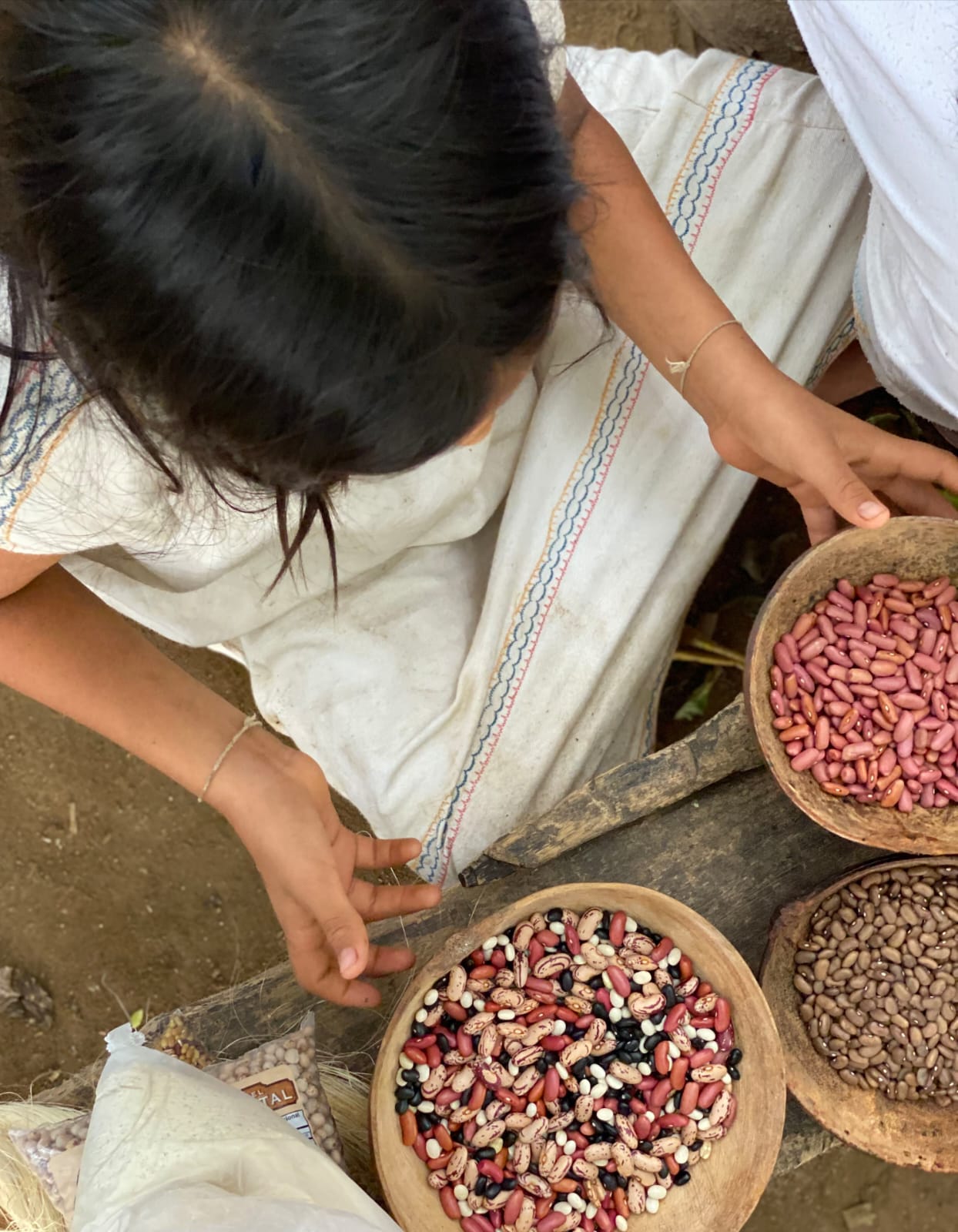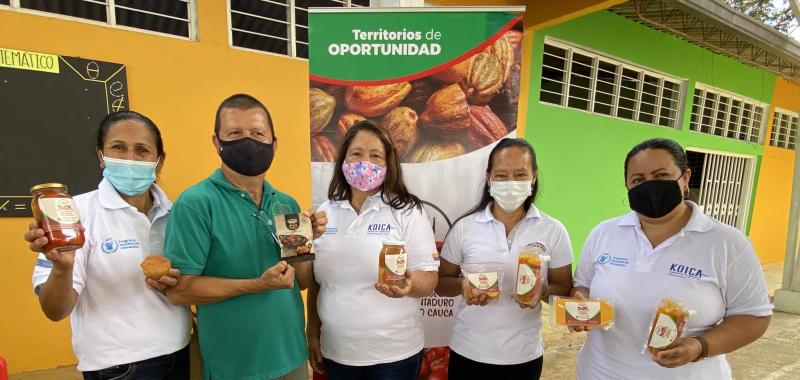Indigenous and Afro-descendent communities in Colombia are at risk of losing their cultural heritage and struggle to guarantee their right to food. Factors such as violence and internal displacement, inequality, and indirect pressure to adopt Western food production and nutritional habits, jeopardize their traditions. As these challenges expand in the country, communities themselves, especially younger generations, disregard their ancestral ways of living as they perceive low incentives to keep them alive.
Project overview
Ancestral Markets is a marketplace that aims to connect indigenous and Afro-Colombian peoples with urban communities around nutrition, with the purpose of trading ethically produced food and safeguarding ancestral knowledge.
Ancestral Markets is a digital marketplace inspired by the old trading points or physical indigenous ancestral markets. These places combined knowledge sharing and food produce trade to ensure the transfer of knowledge and ways of living across generations, rather than just restricting itself to a market whose sole purpose is to buy and sell produce and commodities. The platform seeks to provide opportunities to systematically rescue and bring to fruition in a more sustainable and meaningful manner the available ancestral knowledge linked to food security and nutrition in the country. What makes it unique from other solutions, is that it helps translate the rich community’s cultural heritage and values into sustainable income-generating opportunities through a marketplace innovation.

Participating communities can showcase: 1) nutritious food produce for sale; 2) harvest opportunities; and 3) knowledge-share products or knowledge-recovery projects
In turn, urban users can 1) buy available food produce; 2) kickstart a harvest; and 3) fund knowledge-recovery exercises or purchase knowledge-related products such as biodiversity catalogs or digital ancestral recipe books.
The Ancestral Markets team will pilot the first version of the prototype, combining food produce trade, harvest, and knowledge exchange to increase customer demand from ethnic communities’ produce with seven indigenous and Afro-descendent communities in Colombia. The goal is to gather the insights to expand the solution to 52 communities for 2021-2022, benefiting 25,000 people in Colombia and Ecuador, and then to seven countries in Latin America with an estimated projection of 168,000 people who are part of ethnic communities.
Meet the team








